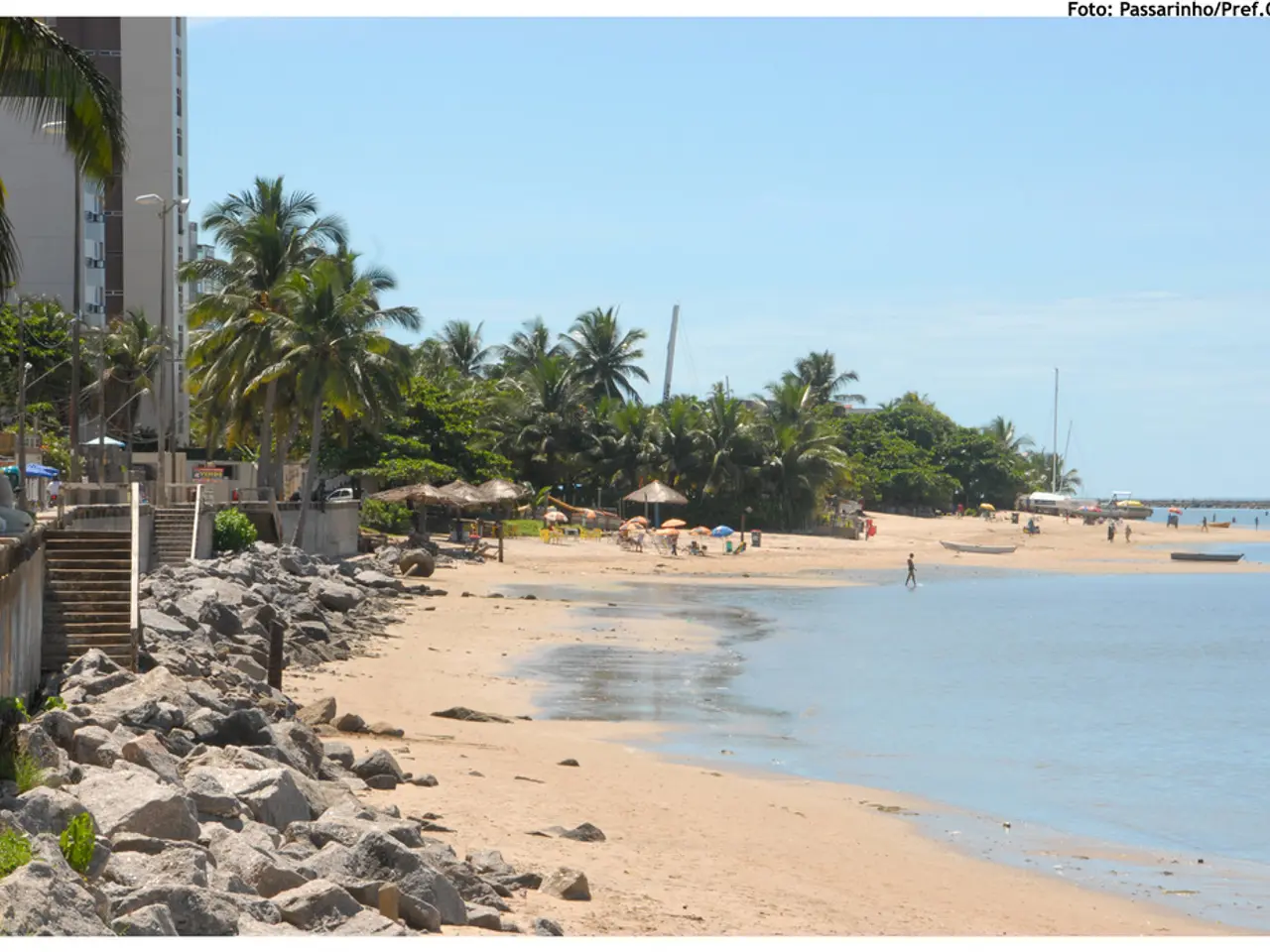Costly access: Experiencing Lebanon's beaches comes with a premium price tag
In the heart of the Mediterranean, Lebanon boasts a picturesque 220-kilometer coastline. However, only a mere 40 kilometers remain unprivatized, leaving 80 percent of the coast inaccessible to many Lebanese citizens.
The privatization of beaches has led to the establishment of expensive beach clubs in Beirut. An average weekday visit to these clubs can cost between 17 and 25 euros, escalating to as much as 51 euros during weekends. For many families, the high entry fees have forced them to bathe at polluted locations due to the unaffordability of cleaner beach clubs and the inability to travel to other beaches.
One of the most polluted beaches in Beirut is Ramlet al-Baida, according to the CNRS research institute. The institute's annual report on water quality strongly advises against swimming at this location. Despite this, wastewater is often discharged into the sea or waste is disposed of at the remaining non-privatized locations along the Lebanese coast.
The economic crisis in Lebanon, which began at the end of 2019, has exacerbated the situation. Attributed to decades of corruption in politics and business, the crisis has severely affected the average population, making a day at the beach a luxury for many families. The country's limited capacity to collect and store rainwater during the wetter winter months further complicates matters.
Advocating for more public spaces is Mohammed Ajub, director of the NGO Nahnoo. He highlights the lack of political will to improve beach conditions or secure more public access. Unfortunately, there are no specific names of political or business personalities in Lebanon mentioned in the search results as responsible for corruption in politics and economy, nor are there concrete measures described in these results regarding anti-corruption efforts in Lebanon.
The lack of a well-developed public transportation network in Lebanon also contributes to the inaccessibility of beaches for many citizens. This, coupled with the high temperatures and humidity during the summer months, makes a day at the beach a challenging prospect for many Lebanese families.
Despite the challenges, Nadim Faradschalla, head of sustainability strategy at the Lebanese-American University in Beirut, remains hopeful. He states that this year, water levels are as low as they've been in a long time, emphasizing the need for immediate action to address these issues. As Lebanon continues to grapple with its economic crisis, the fight for accessible and clean beaches remains a crucial battle for its citizens.







